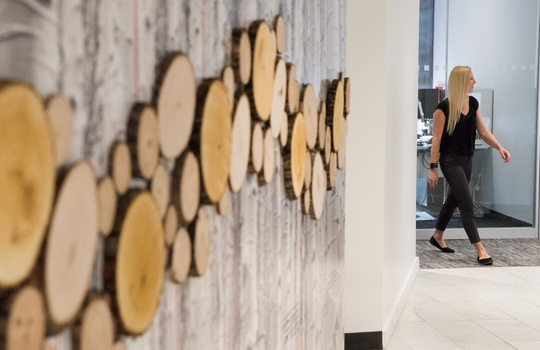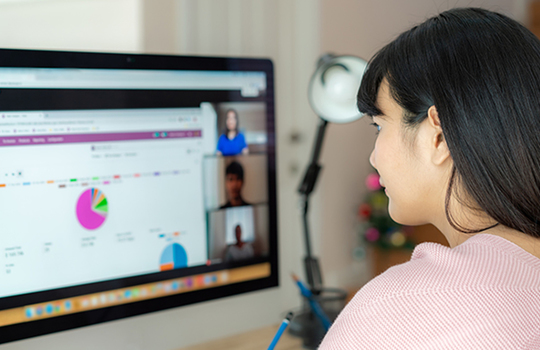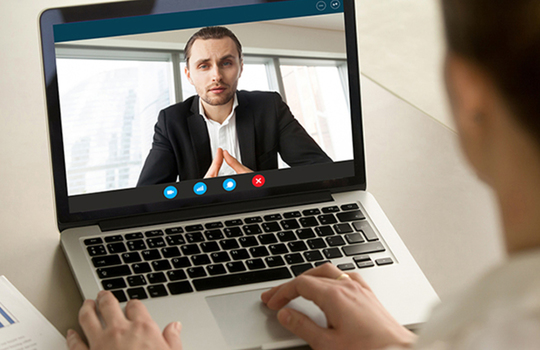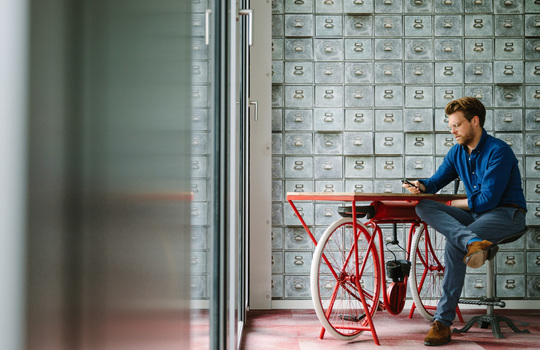The working environment is undergoing a process of dramatic change. Remote work has been implemented on an unprecedented global scale. Until recently, employees stated that one of the main ‘perks of the job’ was the opportunity to work remotely. We occasionally worked from home, looking primarily for peace and quiet in order to focus. Currently, home office is not a matter of choice, but a necessity. We have had to change our existing habits to adapt to the new reality and not always favourable working conditions. However, flexible working methods are just one of the consequences of the current market situation. In the long term, the real estate industry will focus even more on digital transformation, which will allow for a quicker response to rapid changes and fast-moving events.
So how do we evaluate the home office after a few weeks of working from the sofa or the armchair? The JLL team has conducted a survey among employees, in which we analysed their attitude toward remote work and working in the office. Around 700 people took part in the survey at the end of March, with almost 40% of the participants who either hadn’t previously used the home office at all, or worked from home only one day a month.
MAIN CONCLUSIONS
Our research shows that 46% of the people surveyed, due to the home office being mandatory, started to use virtual tools for the first time. Furthermore, 93% of these people have said that they will also use these applications in the future. MS Teams, Webex, Zoom as well as Miro, Discord and Adobe are the most popular applications at the moment. Importantly, people who have, in the past, worked less from home are satisfied with the company’s IT systems. On the other hand, people with more experience in this area are ‘farther down the road’ having already developed appropriate work systems and relationships with other colleagues.
Thanks to working from home, we do not waste time on commuting to the office, feel that we are not distracted by other colleagues, and can spend more time with the family. However, on the other hand, we have a limited number of activities during the day, and can suffer from a sense of isolation and a less comfortable working environment. These factors were mentioned by both women and men, people who already had experience in remote work before the pandemic as well as those who did not have any experience prior to the lockdown.
Offices are created so that we can effectively cooperate with clients and our colleagues from work, providing ergonomic workplaces and productive technologies. Importantly, our motivation is greater when we work in the office. Similarly, we have a sense of belonging to the company, which stems from the frequent, and spontaneous interactions we have with colleagues. On the other hand, home office means fewer distractions, and a quieter working environment (if we don't have children).
So what do we miss most when working from home? Firstly, our interaction with other colleagues, the equipment that makes our work easier, and places that motivate us to work. In addition, we may lack the discipline to design and carry out our normal working schedule. Finally, some of us have to take on the role of part-time teacher because of children’s lessons online and homework.
HOW TO WORK EFFECTIVELY AT HOME?
To increase the efficiency and effectiveness of working from home, it is worth introducing several solutions. First of all, it is worth shortening meetings to use the time to work in the most effective way. Using forms of communication other than e-mails will allow you to settle matters faster, i.e. by phone. In turn, an updated calendar will help us to quickly and efficiently organize our time and schedule for the day.
What to do to have more energy to work? It is worth taking some physical exercise and taking breaks during work. A short walk or even going to the balcony and getting some fresh air will certainly help us look at tasks from a different perspective. In stressful situations, you can reach for mindfulness techniques or listen to relaxing music. An orderly workplace and limiting access to distracting information greatly strengthen our efficiency and productivity.
It is also worth considering two working methods:
- Activity Based Home - involves the creative arrangement of your home so that the individual spaces support the activities performed, such as standing at the window sill, work focused on the bed, or taking a conference call while walking around the kitchen. It is also the implementation of new rules and etiquette for work from home, i.e. a joint calendar of partner teleconferences, an open- and closed-door policy, or a meal preparation schedule.
- Work Life Integration - a combination of life and work to make them one. It is worth interlacing the workday with family responsibilities to reconcile both which often have overlapping obligations, especially if we have to take care of children.
WHAT ACTIONS SHOULD BE IMPLEMENTED BEFORE RETURNING TO THE OFFICE?
We are much more productive while working in the office, we finish tasks faster and successfully complete projects. In turn, when working remotely, we have more time for the family, we do better with the household chores and eat more regularly. Therefore, after returning to the office, we should find a happy balance between the two models of work.
To help employees return safely and efficiently to the office, we should prepare an appropriate communication plan that will inform them about the rules of using the office, moving around the building, or holding meetings in conference rooms. It is worth producing a handout on how to use the office, which will take into account the rules applicable to guests, information, what distance to keep and which devices we can use. The changes should be implemented on a regular basis in accordance with the monitoring of the office space.
The return to the office will force us to work on effective remote work systems, cost reductions, and research and development of data related to maintaining employee efficiency in the office. Procedures and restrictions that can also be used in other situations connected with possible future waves of the pandemic will prove to be significant. Companies will create teams of people responsible for implementing changes, monitoring the situation and controlling the implemented solutions.
Feel free to contact us. We'll be happy to prepare a survey examining the needs of your employees and help implement the properly adapted remote work systems.






